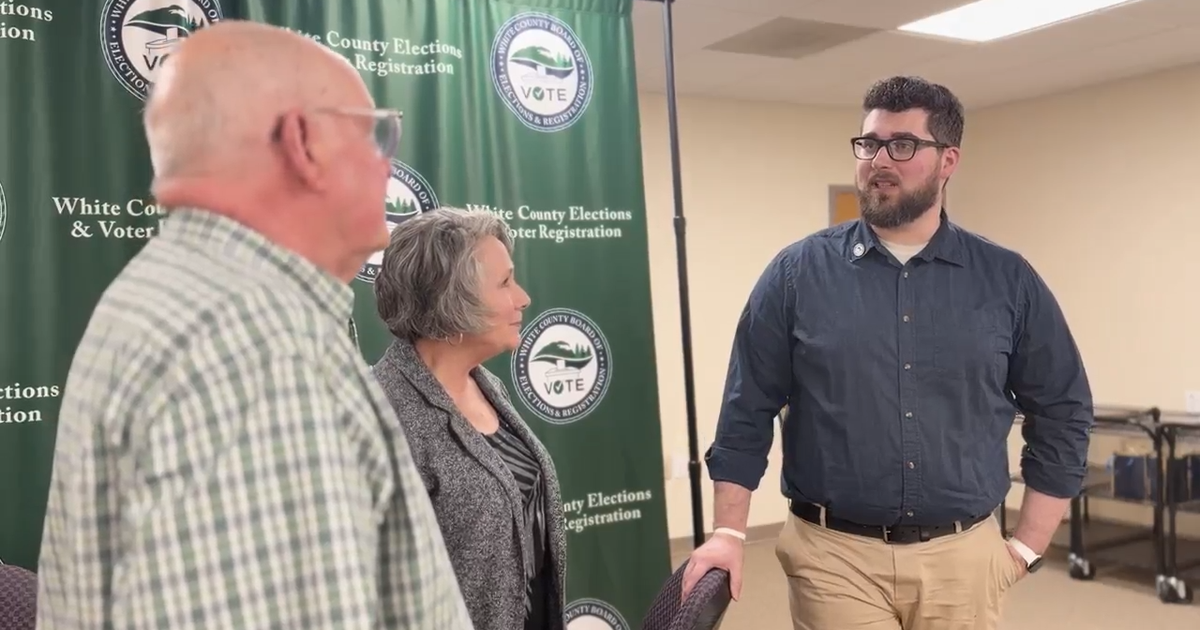North Texas city leaders accuse developers of demanding 100% tax exemptions
Weatherford City Manager James Hotopp said he was stunned by a real estate consultant's recent request for a 100% tax exemption on the city's Lone Oak Apartment Complex.
"I asked him immediately, 'Are these real terms you're proposing to us?' Because it almost seemed like it was illogical to propose something like this," Hotopp said.
Hotopp provided CBS News Texas with a copy of the offer, which claims the developer, Elevate CIG, would in exchange for that complete tax exemption, pay the city of Weatherford's housing authority an estimated $12 million over a span of 10 years, while saving residents more than $6 million in rent.
Hotopp described the estimates as "grossly inflated," and said the meeting ended with an ultimatum.
"He said, 'if you're not interested in doing this transaction then we will find an outside entity that's interested in doing this transaction'," Hotopp said. "We 100% interpreted that as a threat."
Noah Laredo, the consultant Hotopp met, remembers things differently.
"I think he's shooting the messenger," he said.
Laredo said he was hired to advise the complex after interest rates spiked, changing its financial outlook. He also defended the estimates in the offer he presented.
He also said he never threatened to do anything, only predicted what would likely happen in an effort to convince the city of Weatherford of the importance of reaching an agreement.
"You don't have to sit back and watch this property potentially fail, go into foreclosure," he said. "It's going to be detrimental to both of us."
Laredo said he did warn the city about another option available to the complex that could leave it out altogether.
"If another public partner comes into this area and does this transaction, and you get nothing... literally, the city of Weatherford doesn't get any property taxes, the housing authority doesn't get any of those millions of dollars."
The threat of traveling HFCs
Under Texas law, local governments can form non-profits called housing finance corporations, or HFCs, to purchase property, exempt it from paying taxes, and then allow developers to build or maintain multi-family housing on the land tax-free.
For decades, cities and counties have used HFCs as a tool to create affordable housing in their own areas.
In recent years, though, developers have found some small towns and counties willing to go far beyond their limits to broker deals all across the state in exchange for payment.
The CBS News Texas I-Team has reported the problem, and within just the past three years, discovered HFCs formed by Cameron County and Maverick County, as well as the cities of Pecos and Pleasanton, have removed more than $1.7 billion worth of property from North Texas tax rolls alone.
They've been nicknamed "traveling HFCs" for their willingness to make deals throughout the state.
According to Hotopp, the Lone Oak Apartment complex currently pays about $1.3 million annually in property taxes, $282,000 of which goes to the city of Weatherford.
Under an HFC deal, all of that tax revenue would disappear. The HFC, and in some cases the town or county that created it, would get paid. Weatherford would not.
"So $282,000 that would be lost from the city of Weatherford, that would mean approximately six firefighters would have to lose their job or six police officers would have to lose their jobs," said Hotopp.
HFCs are meant to offer affordable housing in return for those tax breaks, but critics say there is no evidence they are actually lowering rents.
"There's no legal requirement for them to comply with any form of affordability other than that's what they say they want to do," said Hotopp.
In a deal approved by an out-of-town HFC, Weatherford would be left without any say in what tenants are charged.
Take a look at the map below to see what other properties are being operated by "traveling HFCs" in North Texas.
Lawsuits challenge their legality
The I-Team first uncovered the Cameron County HFC making deals around the state in 2023.
Earlier this month, Williamson County sued the Cameron County HFC after it approved tax exemptions to two existing properties there.
"We didn't ask for your help. We do not want your help. And what you're really doing is robbing from our children's educational future by creating these tax schemes that take away tax that pays for local teachers in our classrooms. It is wrong," Williamson County Judge Bill Gravell said at a March press conference.
The lawsuit challenges the legality of HFCs operating outside their own jurisdiction, pointing to a clause in the law that reads a developments "must be located within the local government."
Weeks later, Missouri City, a suburb outside of Houston, filed a similar lawsuit against the Maverick County HFC.
Texas Attorney General asked to weigh in
State Rep. Gary Gates, a Houston-area Republican, has pursued both legislative reform and legal relief.
Gates has introduced a bill to ban traveling HFCs, and in October requested the Texas Attorney General's office weigh in on an HFC's "authority... outside of the jurisdictional boundaries of the local government that formed it."
"This is very quickly wiping out a significant segment of the tax base," he said. "In the same way that Dallas cannot all of a sudden decide to wipe out the taxes in El Paso with El Paso having no say so. That, I believe, is unconstitutional."
Gates showed CBS News Texas how real estate developers spell the deals out for their investors in confidential records he obtained.
One refers to a development as a "Goldilocks HFC property" and at least two reports show apartment complexes could maintain or even raise rents without violating the terms of the deal.
Grand Prairie plays ball with developers
In March, the Grand Prairie city council voted to authorize deals through its own HFC that would take six apartment complexes in the city off the tax rolls for 10 years. In exchange, the city will receive a portion of those tax savings in annual payments.
When asked about the decisions, Mayor Ron Jensen said the decision to play ball with developers was better than the alternative: Watching them partner with traveling HFCs and receive no payment at all.
"When our own HFC has intervened and gotten the land, at least our own HFC has been paying us payments in lieu of taxes. I bet we have eight other properties in that outside the city HFCs have purchased not needing any approval from the city council or anybody and they purchase them, they immediately come off the tax rolls," Jensen said.
City officials also said the local HFC would be able to ensure affordable housing commitments are met.
Weatherford hopes for a legislative or legal solution
Hotopp said he reached out to Cameron County HFC's executive director Mark Yates over the phone and in writing to clarify that Weatherford is "adamantly opposed" to the South Texas HFC getting involved in its city.
"Mark said they had not been in discussion with this developer but that they are often used as a threat to get a transaction done," Hotopp said.
Hotopp said he did eventually hear back from Laredo.
"He just wanted to clarify that he did not after this discussion, that he did not intend for me to take that as a threat and he wanted me to clear that up with Cameron County and with Mark that I misunderstood what he had to say."
When asked if he'd perhaps misunderstood, Hotopp said, "I did not misunderstand it at all."
Laredo said that whether Weatherford likes it or not, the existence of traveling HFCs can't be ignored.
"I didn't write these laws. The developer of this multi-family project didn't write these laws... We're trying to consult and provide solutions for clients and if I just act like this doesn't exist then someone else is going to educate them and make it happen," he said.
CBS News Texas has identified at least four traveling HFCs that are active in North Texas despite being based elsewhere in the state.
Hotopp worries that even if one won't make the deal, an interested developer could simply move on to another.
It's why he supports proposed legislation, like Gates' bill, to stop this practice.
When it comes to deals that have already been made, like those in Williamson County, it'll likely take a court ruling to invalidate them.







